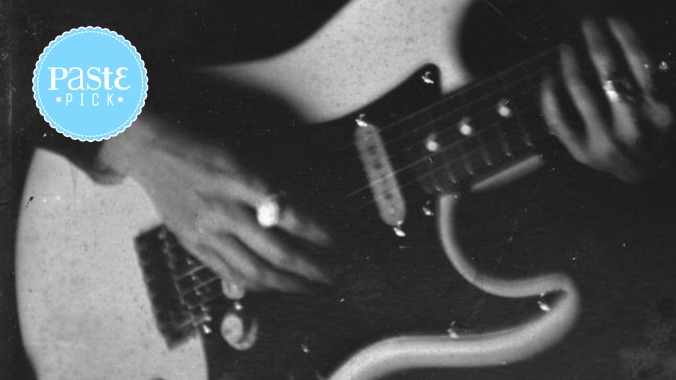Midwife Mourns to New Extremes on No Depression in Heaven
Colorado experimental slowcore artist Madeline Johnston takes her “heaven metal” treatment to someplace new on her fourth solo LP.

When looking back on post-WWII urban renewal policies across the United States, historian Francesca Ammon isolates the figure of the bulldozer and its veneration as something that helped convince many Americans that destruction was progress. Government programs training thousands of men to operate heavy excavation vehicles plus federal subsidies to clear housing that localities deemed as substandard led to the destruction of one out of every 17 housing units nationwide with millions of acres of earth moved for interstate highways alone, with the vast majority of demolished homes never replaced. As sticky as that attitude remains today, it’s not without complication: Many see Urban Renewal as a failure that exacerbated existing problems and rightfully fear any grand scale urban investment program as a death knell for communities that are barely hanging on.
This is part of the baggage that weighs down the first single, “Killdozer,” from Madeline Johnston’s fourth album as Midwife, No Depression in Heaven. In the video, Johnston collects documentary footage from Granby, Colorado, the site of Marvin Heemeyer’s 2004 rampage in an armored bulldozer attempting to liquidate his foes. Johnston’s lyrics touch on watching your hometown disappear: “There used to be a city here / Now it’s a dying breed.” Over bleary cycles of closely held guitar, Johnston’s exercise of mourning will be familiar to anyone who’s watched the place they’ve called home grow unrecognizable through gentrification. The similarly affecting “Vanessa” is as forlorn and deliberate as an ode to a lost love, and in a sense, it is about a lost love: her van. When your life is as itinerant as Johnston’s, your vehicle becomes an extension of yourself. A love song to a dying car sounds like a joke, but in typical Midwife fashion, “Vanessa” is extremely moving, recognizing the inherent connection between car-as-vehicle and body-as-vehicle.
Midwife has never been strict on genre, but the earliest releases had clear roots in post-metal, a kind of re-contextualizing of doom’s tools in an ambient singer-songwriter format. By now, on her fourth album, Johnston has incorporated every kind of slow, deliberate style under the Midwife project, creating something with sublime beauty and pitch darkness as its primary aesthetic qualities. No Depression in Heaven draws on a variety of traditions, most interestingly bluesy post-punk in her cover of Rowland S. Howard’s “Autoluminescent” and Eurodance in her reimagining of “Better Off Alone.” Whether it’s an existing tune or a fresh composition, everything gets the Midwife treatment: subtle percussion (if any), hazy guitar loops and vocals cast through a gauzy mesh that makes them sound like transmissions from heaven. On stage, Midwife sings into a telephone, achieving a transhuman distanced effect. What she utters carries the weight of doom despite, or arguably through, its gossamer manifestation.
-

-

-

-

-

-

-

-

-

-

-

-

-

-

-

-

-

-

-

-

-

-

-

-

-

-

-

-

-

-

-

-

-

-

-

-

-

-

-

-








































